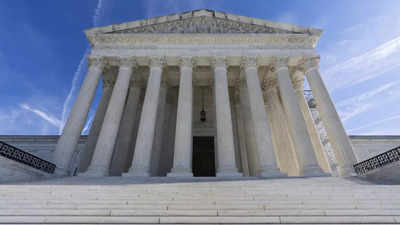Welcome To Latest IND >> Fastest World News
Alabama’s Anti-DEI Law Faces Legal Battle as Professors and Students Challenge Restrictions on Race and Gender Discussions. (AP Photo)
Alabama’s new law banning diversity, equity, and inclusion (DEI) programs at public universities is facing a legal challenge from faculty and students. The lawsuit, filed on January 14, 2025, claims that the law violates First Amendment rights by restricting academic freedom and limiting race and gender-related discussions in the classroom. The plaintiffs argue that the law disproportionately affects Black students and educators, especially by curbing programs designed to support marginalized communities.
The law, which went into effect on October 1, 2024, prohibits public universities, K-12 schools, and state agencies from conducting DEI programs. These programs include classes, workshops, and events focused on race, gender identity, and sexual orientation. Additionally, it bars discussions on concepts such as assigning blame based on race or teaching that individuals should feel guilt for the actions of their ancestors, as reported by the Associated Press. Governor Kay Ivey has stood by the legislation, asserting that it seeks to curb divisive political ideologies in education.
Lawsuit Challenges Constitutional Rights
The lawsuit is led by the NAACP Legal Defense Fund and the American Civil Liberties Union of Alabama, representing professors and students from the University of Alabama and the University of Alabama at Birmingham. The plaintiffs argue that the law undermines academic freedom by placing severe restrictions on educators’ speech and curriculum. They also contend that it disproportionately harms Black students by limiting resources and organizations dedicated to supporting them.
Antonio L. Ingram II, senior counsel at the Legal Defense Fund, emphasized the harmful effects on marginalized groups. “The harms are particularly salient for Black, LGBTQ+, and other faculty and students of color, whose histories and lived experiences have been dismissed, devalued, and undermined on their campuses,” Ingram quoted by the Associated Press.
Impact on Educators and Students
Several professors have voiced concerns about the practical consequences of the law. A social work professor reported being threatened with dismissal unless she canceled a class project where students analyzed the potential negative impacts of the new legislation. A political science professor at the University of Alabama raised alarms about the law’s chilling effect, saying university officials warned her that discussing systemic racism in poverty studies could violate the law, as quoted by the Associated Press.
Since the law’s implementation, universities have been forced to close or rebrand their DEI offices. Despite the backlash, Governor Ivey’s spokesperson, Gina Maiola, stated that the governor fully supports the law’s intentions.
As reported by the Associated Press, similar legal challenges have emerged in other states, such as Florida, where lawsuits against similar anti-DEI measures continue to be litigated. The outcome of the Alabama case could have broad implications for the future of DEI programs across the United States.
Latest IND
